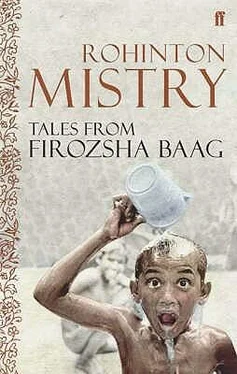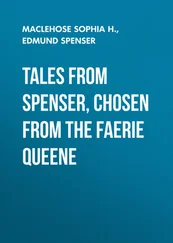Rohinton Mistry - Tales From Firozsha Baag
Здесь есть возможность читать онлайн «Rohinton Mistry - Tales From Firozsha Baag» весь текст электронной книги совершенно бесплатно (целиком полную версию без сокращений). В некоторых случаях можно слушать аудио, скачать через торрент в формате fb2 и присутствует краткое содержание. Год выпуска: 2006, Издательство: Faber & Faber, Жанр: Современная проза, на английском языке. Описание произведения, (предисловие) а так же отзывы посетителей доступны на портале библиотеки ЛибКат.
- Название:Tales From Firozsha Baag
- Автор:
- Издательство:Faber & Faber
- Жанр:
- Год:2006
- ISBN:нет данных
- Рейтинг книги:3 / 5. Голосов: 1
-
Избранное:Добавить в избранное
- Отзывы:
-
Ваша оценка:
- 60
- 1
- 2
- 3
- 4
- 5
Tales From Firozsha Baag: краткое содержание, описание и аннотация
Предлагаем к чтению аннотацию, описание, краткое содержание или предисловие (зависит от того, что написал сам автор книги «Tales From Firozsha Baag»). Если вы не нашли необходимую информацию о книге — напишите в комментариях, мы постараемся отыскать её.
Tales From Firozsha Baag — читать онлайн бесплатно полную книгу (весь текст) целиком
Ниже представлен текст книги, разбитый по страницам. Система сохранения места последней прочитанной страницы, позволяет с удобством читать онлайн бесплатно книгу «Tales From Firozsha Baag», без необходимости каждый раз заново искать на чём Вы остановились. Поставьте закладку, и сможете в любой момент перейти на страницу, на которой закончили чтение.
Интервал:
Закладка:
But while the first flush of confidence flowed through me, the bus had moved well into the stream of traffic. My momentary hesitation gave the game away. With the old and feeble was my place, as long as I was a tourist here, and not committed to life in the combat zone.
In Firozsha Baag things were still roughly the same, but Mrs. Mody had died, and no one knew what Pesi was doing now. In fact, ever since he had been sent away to boarding-school some years ago, Pesi’s doings were not spoken of at all. My friend Viraf of A Block, whom I had been unable to say goodbye to two years ago because he was away in Kharagpur studying at the Indian Institute of Technology, was absent for my hello as well. He did not return to Bombay because he had found a job in nearby Calcutta.
Tehmina had at last rid herself of the cataracts. She was suddenly very spry, very sure of herself in all she did. Along with her cataracts she had also jettisoned her old slippers and duster-coat. Her new ensemble consisted of a long, flowing floral-patterned kaftan and a smart pair of chappals with little heels that rang out her presence on the stairs and in the hallway.
But Najamai had aged considerably. She kept asking me why I had not yet been to see her daughters even though she had given me their addresses: Vera was somewhere in Alberta, and Dolly in British Columbia.
My brother, Percy, wrote from the small village that he wanted to meet me, but: “I cannot come to Bombay right now because I’ve received a letter from Jamshed. He’s flying in from New York, and has written about reunions and great times for all the old crowd. That’s out of the question as far as I’m concerned. I’m not going to see him again.”
I wrote back saying I understood.
Our parents were disappointed. They had been so happy that the whole family would be together again for a while. And now this. They could not understand why Percy did not like Jamshed any more, and I’m sure at the back of their minds they thought their son envied his friend because of the fine success he’d made of himself in America. But who was I to explain things, and would they understand even if I tried? They truly believed that Jamshed was the smart young fellow, and Percy the idealist who forgot that charity begins at home.
This trip was not turning out to be anything I’d hoped it would. Jamshed was coming and Percy wasn’t, our parents were disappointed with Percy, I was disappointed with them, and in a week I would be flying out of Bombay, confused and miserable. I could feel it already.
Without any destination in mind I left the house and took the first empty bus to come along. It went to Flora Fountain. The offices were now closing for the day. The dirty, yellow-grey buildings would soon spill out typists and clerks and peons into a swelling stream surging towards bus-stops and train stations.
Roadside stalls were open for business. This would be their busy hour. They were lined up along the edge of the pavement, displaying their merchandise. Here a profusion of towels and napkins from shocking pink to peacock green; there, the clatter and gleam of pots and pans; further down, a refreshment stall selling sizzling sarnosas and ice-cold sherbet.
The pavement across the road was the domain of the smugglers with their stalls of foreign goods. But they did not interest me, I stayed where I was. One man was peddling an assortment of toys. He demonstrated them all in turn, calling out, “Baba play and baby play! Daddy play and Mummy play!” Another, with fiendish vigour, was throwing glass bowls to the ground, yelling: “Un-ber-rakable! Un-ber-rakable!”
Sunlight began to fade as I listened to the hawkers singing their tunes. Kerosene lamps were lit in some of the stalls, punctuating at random the rows on both sides of the street.
Serenely I stood and watched. The disappointment which had overcome me earlier began to ebb. All was fine and warm within this moment after sunset when the lanterns were lit, and I began to feel a part of the crowds which were now flowing down Flora Fountain. I walked with them.
Suddenly, a hand on my shoulder made me turn around. It was Jamshed. “Bet you weren’t expecting to see me in Bombay.”
“Actually, I was. Percy wrote you were coming.” Then I wished I hadn’t volunteered this bit of information.
But there was no need to worry about awkward questions regarding Percy. For Jamshed, in fine fettle, had other thoughts he was anxious to share.
“So what are you doing here? Come shopping?” he asked jokingly, indicating the little stalls with a disdainful sweep of his hand. “Terrible, isn’t it, the way these buggers think they own the streets — don’t even leave you enough room to walk. The police should drive them off, break up their bloody stalls, really.”
He paused. I wondered if I should say something. Something that Percy would love to hear me say. Like: these people were only trying to earn a meagre living by exercising, amidst a paucity of options, this one; at least they were not begging or stealing. But I didn’t have a chance.
“God, what a racket! Impossible to take even a quiet little walk in this place. I tell you, I’ll be happy when it’s time to catch my plane back to New York.”
It was hopeless. It was his letter all over again, the one he’d written the year before from New York. He had then temporarily disturbed the order I was trying to bring into my new life in Toronto, and I’d struck back with a letter of my own. But this time I just wanted to get away from him as quickly as possible. Before he made the peace of mind I was reaching out for dissipate, become forever unattainable.
Suddenly, I understood why Percy did not want to meet him again — he, too, sensed and feared Jamshed’s soul-sapping presence.
Around us, all the pavement stalls were immersed in a rich dusk. Each one was now lit by a flickering kerosene lantern. What could I say to Jamshed? What would it take, I wondered, to light the lantern in his soul?
He was waiting for me to speak. I asked, perfunctorily, how much longer he would be in Bombay.
“Another week. Seven whole days, and they’ll go so slowly. But I’ll be dropping in at Firozsha Baag in a couple of days, tell Percy.” We walked to my bus-stop. A beggar tugged at his sleeve and he mechanically reached in his pocket for change. Then we said good-night.
On the bus I thought about what to say if he asked me, two days later, why I hadn’t mentioned that Percy was not coming.
As it turned out, I did not have to say anything.
Late next evening, Percy came home unexpectedly. I rushed to greet him, but his face revealed that he was not returning in this manner to give us a pleasant surprise. Something was dreadfully wrong. His colour was ashen. He was frightened and shaken, and struggled to retain his composure. He tried to smile as he shook my hand limply, but could not muster the effort to return my hug.
“What’s the matter?” said Mother. “You don’t look well.”
Silently, Percy sat down and began to remove his shoes and socks. After a while he looked up and said, “They killed Navjeet.”
No one spoke for the next few minutes. Percy sat with his socks dangling from his hands, looking sad, tired, defeated.
Then Mummy rose and said she would make tea. Over tea, he told us what had happened. Slowly, reluctantly at first, then faster, in a rush, to get the remembering and telling over with as soon as possible. “The money-lenders were ready to make trouble for us again. We didn’t think they’d do anything as serious as the last time. The press was following our progress and had reported the arson in many newspapers. Yesterday we were out at the wholesaler’s. Ordering seed for next year. But Navjeet had stayed behind. He was working on the accounts. When we returned he was lying unconscious. On the floor. His face and head were bleeding badly. We carried him to the makeshift clinic in the village — there is no hospital. The doctor said there was severe internal damage — massive head injuries — a few hours later he was dead.”
Читать дальшеИнтервал:
Закладка:
Похожие книги на «Tales From Firozsha Baag»
Представляем Вашему вниманию похожие книги на «Tales From Firozsha Baag» списком для выбора. Мы отобрали схожую по названию и смыслу литературу в надежде предоставить читателям больше вариантов отыскать новые, интересные, ещё непрочитанные произведения.
Обсуждение, отзывы о книге «Tales From Firozsha Baag» и просто собственные мнения читателей. Оставьте ваши комментарии, напишите, что Вы думаете о произведении, его смысле или главных героях. Укажите что конкретно понравилось, а что нет, и почему Вы так считаете.












